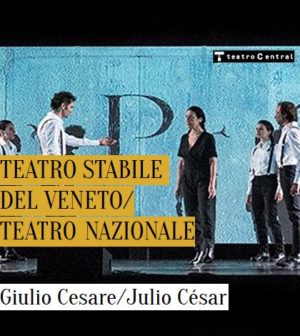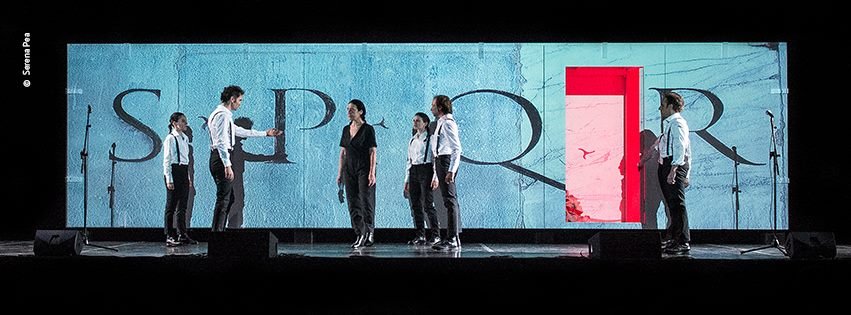- Ice skating rinks in Seville this Christmas
- Christmas Mapping ‘Navigalia’ in the river of Seville. Dates, passes and prices 2024
- Christmas lighting in Seville. Lights on. Christmas lights
- Itinerary, Tour schedule and the Cavalcade of the Magi from Sevilla 2025
- Christmas Menus in Seville
- Belen of Sanlúcar la Mayor. Christmas in Sevilla
- The Cirque del Sol returns to Seville with 'Alegría'. 2024
- List of Booths April Fair
- April Fair in Seville 2024. From 14 to the 20 April
- Valentine menu Sevilla | Valentine dinner Sevilla | Valentine Romantic Dinner
Giulio Cesare-Julius Caesar. Theatre Central
Did you found interesting?

10 and 11 March 2017
At 21:00 hours
Theatre Central. room A
Giulio Cesare-Julius Caesar
Compañía Teatro Stabile VENETO / NATIONAL THEATER
De William Shakespeare.
Translation: Sergio Perosa.
Adaptation and staging: Àlex Rigola.
By Michele Riondino y Maria Grazia Mandruzzato, Stefano Scandaletti, Michele Maccagno, Silvia Costa, Margherita Mannino, Eleonora Panizzo, Pietro Quadrino, Riccardo Gamba, Raquel Gualtero, Beatrice Fedi, Andrea Fagarazzi.
With the collaboration of the Italian Cultural Institute.
Premiere in Spain.
Show in Italian with surtitles in Castilian.
premiered on 6 JULY 2016 IN THE THEATER ROMANO VERONA REACHES ANOTHER SEVILLA spectacular staging WILLIAM SHAKESPEARE
VISCERAL AND CONTEMPORARY: It's Julius Caesar ÀLEX RIGOLA
William Shakespeare wrote in Julius Caesar 1599. The work compresses the three years since the victory of Munda, in the 45 a.C., until the suicide of Brutus happened in the 42 a.C., to make lasting less than six days.
A conflict also through the new version of the most famous historic Shakespearean drama, entrusted by the Teatro Stabile del Veneto Àlex Rigola, and in Michele Riondino - prized film actor, theater and television ideal for the role of the nobleman Marco Antonio interpreter.
Director of the Venice Biennale Theater, Rigola made his first address in Italy returning to the work that was announced in Seville and internationally.
Live hanging by a thread, in a state of insecurity, continuous contradiction, a pervasive and latent violence: part of the human condition the way Rigola has decided to go to conduct the work of the twelve actors on stage. How can you manage the violence that divides men? How you may ask someone, if only in fiction, kill a fellow? What are the budgets that can be split to organize a revolution?
But what happens after the crime? What will build once perpetrated the destruction plan? Stupid, Cassius and the other conspirators do not know what will be the consequences of their actions. In the background they are nothing more than human beings and, as such,full of contradictions. They work because they believe it is necessary for a change and so they decide to kill Caesar. The truth, however, they do not know exactly what will happen next; They do not know the utopian dream of the republic will be relegated, that violence only begets more violence and, then as now, it is not possible to speak of democracy.
In this Roman drama no heroes but men only. And there are no heroes in Julius Caesar because there are no certainties or absolute values. Everything happens and everything changes; myths wax and wane to be replaced by others who will tumble; the reality is ungraspable and elusive, observable from a thousand views, susceptible of a thousand interpretations.
Like traversing this version of the text. contemporary, visceral, outside any scheme and all category. A Julius Caesar interrogates the spectator and places it in front of himself, Uncompromising.
Learn more: www.juntadeandalucia.es/cultura/teatros/teatro-central/

















